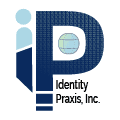MEF Webinar: What Do Context, Semantics, And Mobile Wallets Have In Common?
In this webinar, I sat down with Paul Knowles from the Human Colossus Foundation (HCF) and Petri Seljavaara from HCF and Wellbeing Cart to discuss the current and future state of mobile wallet development and the industry’s steps toward empowering people with granular control over their data.
We explore, in detail, the current state, challenges, and trends facing the industry regarding mobile wallet development and data management. We review data-centric design, as seen through the lens of the HCF Informatics Domain Model and Quadmodal Object Model and HCF developed and governed open-source frameworks–Overlay Capture Architecture (OCS) and Self-action Systems (SaS).
Finally, we conclude the session by demonstrating how all the discussed models and frameworks are being deployed today to support the development of rich, contextually relevant, data-enhanced experiences.
The Definitions
Paul, Petri and I start out by defining a broad set of extremely important terms, terms we refer back to and add to throughout our entire discussion.
Digital Wallet (or “Mobile Wallet”, “Smart Wallet”, “Open Wallet”…)– A secure software application or service that enables individuals to store and manage credentials, granularly share data, and conduct transactions.
Dynamic Data Economy (DDE)– A data-centric paradigm enabling consensual schemes, better decisions, and prosperity through harmonized data and stable governance frameworks.
Semantics– The study of meaning; a process for making meaning from words and word relationships, granularly, referring to the theory of knowledge, especially in regard to the methods, validity, scope, and distinction between verified and opinion-based knowledge.
Morphological– Refers to form and structure of things, e.g., data.
Epistemological semantics– The study of knowledge representation and understanding within data semantics.
Morphological semantics– The study of structural aspects in data representation shaping its meaning and interpretation, including formats, encoding, and syntactic elements.
Quadmodal Object Model– An interactive entity for secure data management featuring role-based access to wearable objects, auditable events, notable concepts, and guardable actions.
Overlays Capture Architecture (OCA)– A data framework that enhances data exchange and interpretation by adding semantic information, promoting standardized data representation, and enabling seamless interaction across diverse systems and domains.
SELF Actioning System (SAS)– An Al-enhanced systemic framework that combines personal introspection and reflexive action with data-driven operations for self-improvement and decision-making.
These terms at first pass can be quite confusing, but as you listen to the webinar and read the documentation provided by the HCF they all starts to make sense.
HCF Models and Frameworks
In the webinar, we go into great detail explaining all the elements and thinking behind the models and frameworks, as illustrated in the image on the left.
As discussed in the webinar, the models and frameworks proposed by Paul and Petri are intended to help data be born ready for use within a dynamic data economy.
To accomplish this, data is laced with semantics at creation. These semantics are used and implemented to take advantage of context.
Furthermore, by leveraging an architectural framework like OCA, all parties concerned can be assured that, in a distributed environment, only the authorized and delegated actors with the appropriate authority can access certain data sets and influence the overall mobile wallet and data presentation experience.
For instance, in the webinar, we show how a Swiss passport can be presented digitally and how the language used in the presentation of the passport can be dynamically changed in real-time without touching the underlying verified data of the passport.
We also briefly explain how British Columbia and the University of Guelph Agri-Food Data Canada projects are leveraging OCA. Petri also notes that he uses OCA and SAS for some projects he is working on with various African governments.
Learn more and Get Involved
You can learn more about the Human Colossus Foundation here. You can get involved with its working groups, as well as download and use open-source models and frameworks. Paul and Petri would welcome the opportunity to hear from you.
Michael Becker is an intentionally recognized identity & personal information management solutions strategic advisor, speaker, entrepreneur, and academic. He advises companies on personal information economy business strategy, product development, business development, and sales & marketing strategies. He also represents them at leading trade groups, including the Mobile Ecosystem Forum. Michael is an advisor to Assurant, Predii, Privowny, and Phoji. He is the co-author of Mobile Marketing for Dummies and a number of other books and articles related to mobile marketing, identity, and personal information management. He is on the faculty of marketing of the Association of National Advertisers and National University. A serial entrepreneur, Michael founded Identity Praxis, co-founded mCordis and The Connected Marketer Institute, was a founding member of the Mobile Marketing Association (MMA), and was on the MMA board of directors for ten years and was MMA’s North American Managing Director for three years. In 2004, Michael co-founded iLoop Mobile, a leading messaging solutions provider. In 2014, Michael was awarded the 2014 Marketing EDGE Edward Mayer Education Leadership Award for his commitment to marketing education.


